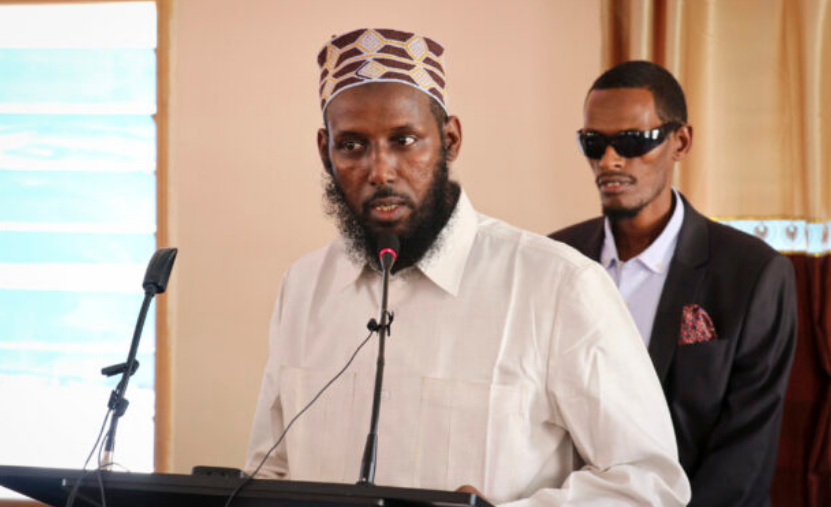Somali Prime Minister Hamza Abdi Barre named Mukhtar Robow, a co-founder and spokesman for the Islamist al Shabaab, as minister for religious affairs on Tuesday, a move that could either strengthen the fight against the insurgents or spark further clan clashes.
Mukhtar Robow co-founded the al Qaeda-affiliated organisation al Shabaab and served as its spokesperson, earning him a $5 million U.S. bounty on his head.
Tens of thousands of people have been killed by bombings carried out by Al Shabaab insurgents in their struggle to topple Somalia’s central government and impose their interpretation of Islamic law.
When Robow joined the government side in 2017, he publicly denounced al Shabaab after leaving the group in 2013.
But the relationship soured after he grew too politically powerful. Somalia’s previous government arrested Robow in December 2018 as he campaigned for the regional presidency of southwest state.
Security forces shot dead at least 11 people in the protests that followed, sparking criticism from the United Nations.
Robow’s new job sparked a flurry of hashtags on twitter crowing he had made it #FromPrisonertoMinister.
He had been held under house arrest until recently.
His appointment could help strengthen government forces in his native Bakool region, where insurgents hold substantial amounts of territory but where Robow also commands support.
Or it could fan flames with the region’s president, who sees him as a political rival.
“We welcome his appointment. The move will advance reconciliation and will serve as a good example for more high level al-Shabab defections,” said political analyst Mohamed Mohamud.
“Al Shabaab members who might be thinking of surrendering … can dream of serving their country at the highest levels.”
New President Hassan Sheikh Mohamud, elected by lawmakers in May, has promised to take the fight to the insurgents after three years in which his predecessor, consumed by political infighting, took little action against al Shabaab.
That allowed the insurgents to build up substantial reserves of cash and carry out attacks over a wide swathe of Somalia.
Last week scores of al Shabaab fighters and Ethiopian security forces were killed in clashes along the two nations’ shared border.

